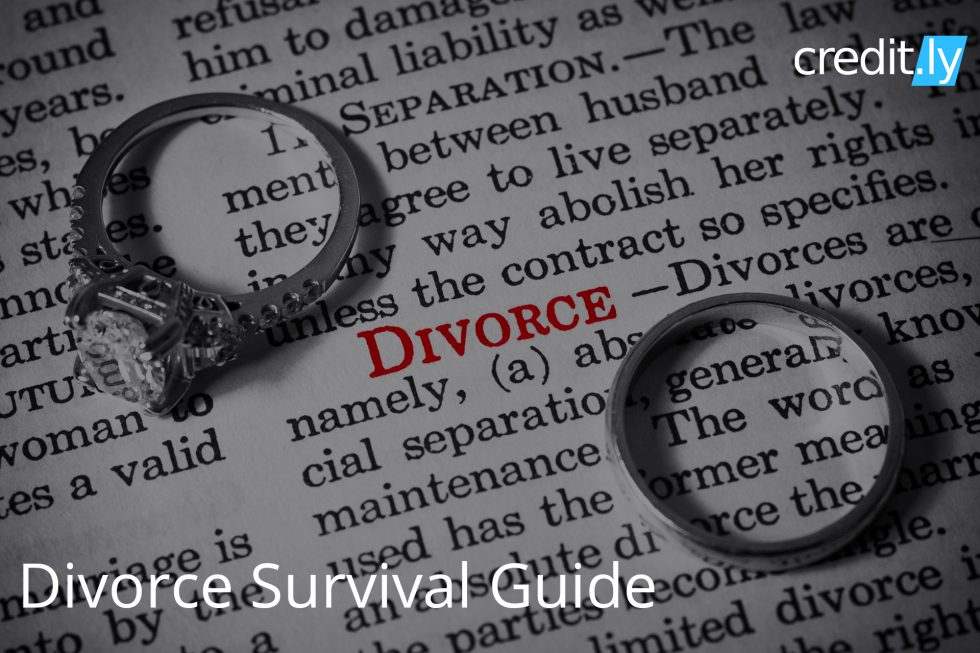Sometimes, things just don’t work out. It’s a mess, and your credit needs to be sorted out. Marriage can have a big impact on your credit history. While your individual credit reports still stand, if you combined accounts and borrowed money together after tying the knot, you also tied your credit ratings and wallets. If you get divorced, those metaphorical knots have to be untangled, which can have some impact on your credit. And even if you didn’t combine all your accounts, you may still need to engage in divorce credit repair.
How Can a Divorce Damage My Credit Score?
At least some things are still private, such as credit reports, which don’t keep an accounting of your marital status. Whether you’re single, married or divorced doesn’t have a direct impact on your credit rating. But what happens with your finances after your divorce can drive a good credit score to a bad creditor and vice versa. Unfortunately, you don’t always have control over every account.
For example, consider a scenario where you and your spouse share two credit card accounts and decide to each pay one off after the divorce. It seems like a fair way to split up your credit card debt, but what if your spouse doesn’t follow through with their end of the deal? Any late payments or defaults are reported on your credit history too, because you’re still legally responsible for the debt. Missed payments could but a ding in your credit score.
You could also run into a problem of credit utilization.
If you have several accounts as a couple during your marriage. And the other spouse agrees to take on that debt because they make more money. You might think you’re off the hook completely. But even if they make timely payments, that debt will still show up as owed. That means if you attempt to get new debt while your accounts still show high balances, you could be declined—even though you personally no longer use those accounts.
Does a Divorce Decree Remove Your Debt Obligations?
A divorce decree or order often includes language that lay out more than how you’ll divide assets or custody of children. In some cases, they can include a written agreement between spouses about how debt will be handled or split. But do you know who isn’t a party to such agreements? The banks and lenders who hold those debts.
Many people think a divorce decree stating the other person will pay a debt is a legal get-out-of-debt card, but it’s not. The bank didn’t agree to let you out of the agreement, and it’s not likely to be motivated to call it even if your spouse ends up defaulting on the debt for any reason.
That doesn’t mean you can’t agree during the divorce process to divide and conquer your debts. It does mean, however, that you leave yourself open to future credit risks should your spouse become unable or unwilling to hold up their end of the bargain.
How to Deal With Debt and Divorce.
How to Deal With Post-Divorce Credit Repair
If a court order doesn’t offer some peace-of-mind when it comes to your post-divorce credit rating, what can? Fortunately, there are several steps you can take to protect your credit rating and credit history and repair any damage that occurs during the divorce process.
1. Pay Off and Close Shared Accounts
The best protection you and your spouse can have is closing shared accounts, like joint credit cards or bank accounts, completely and paying them off. You can do this by refinancing them with loans in your individual names or by cashing out shared savings to pay off debts before the divorce process is finalized. In some cases, you can even make this part of the official divorce proceedings and requirements. When you don’t owe money together, you can’t impact each other’s credit score in the future.
2. Have a Plan for Managing Ongoing Accounts
It’s not always possible to close or refinance all your debt, especially immediately. Neither spouse may be in a position to buy the other out of a mortgage, for example. In cases like this, it’s important to work together if you can to manage finances. Take steps such as ensuring you both have access to online accounts to ensure bills are paid. Also encourage your spouse to use automatic payment options to make it less likely a bill is forgotten.
3. Handle Your Individual Personal Finances Well
You can’t control everything your ex does after a divorce, but you can manage your own finances as well as possible. Take time to understand your own income and expenses so you can create a smart personal budget and follow good financial management tips to rebuild your money situation after a divorce.
4. Protect Your Identity
When your divorce is amicable, you’re able to work together to solve some of these financial challenges and ensure you both end up with good money situations. Unfortunately, that’s not always the case. If your split was contentious or you don’t trust your spouse, consider putting identity theft protections in place. There are cases where exes use their former spouse’s identity to take out loans or get credit cards, and protections help you avoid such situations.
5. Stay In-the-Know About Your Own Credit Report and Rating
Even if you aren’t worried your spouse might dip into your personal information to obtain funds, keeping an eye on your own credit report is important. First, as you work to close or manage accounts, your credit report can help guide you to which areas need work. Second, once you’ve overcome post-divorce credit repair tasks, you should continue to manage your own credit rating to ensure as stable a financial future as possible.
Credit.ly provides several options for accessing your credit report so you know exactly what you’re dealing with. And if you find anything that looks off, you can work with professionals to fix errors or repair your credit as you move on from your divorce.
Learn more at Creditly Resource Center.
[/et_pb_text][/et_pb_column][/et_pb_row][/et_pb_section]









